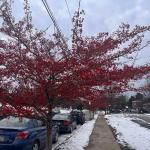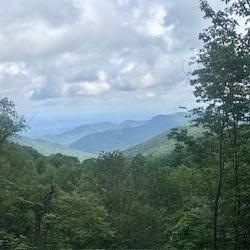Cutting Through the Nostalgia
To be honest, I have never been a huge fan of the Christmas holidays. As a kid growing up with ADHD, it was never a pleasant time. Usually there was a lot of chaos and in the 80’s, ADHD was still not as understood as it is today. By the time we got to my second set of grandparents’ house, my meds were wearing off and I was tired, overstimulated and in serious need for a break. All things I would not come to understand until I was an adult and working in the mental health field. We famously say in my paternal family, we put the fun in dysfunctional and it was not a family gathering until someone was crying or hollering at someone. That aside, I have never been a fan of the myth of the Christmas season.
I could create a laundry list of things wrong with the Christmas holidays – fake smiles, a longing for the good old days, even coercion to be on our best behaviors or we get a lump of coal or worse if you do the whole Krampus thing. If we take a deeper dive into the history of the holiday season, which now runs from Thanksgiving through the New Year, we will see rich and diverse religious expressions of faith.
A Cross Cultural/Religious Understanding
The four weeks in December that mark the Advent and Christmas season is truly a cross cultural and cross religious holiday season, encompassing Judaism, Christianity, and Pagan religious practices.
On December 21, the world celebrates the longest day with the winter solstice. You can find a great article from a source I use when I teach Paganism in my religion classes here: https://www.learnreligions.com/about-yule-rituals-2562970. Many of the rituals of the winter solstice are the same seen in traditional Christian practices of Christmas, blessings, tree lightings, candle wreaths, and rituals of preparation. In the Yule ceremony, there is a celebration over the return of the sun.
From Friday, December 7th of this year till the 15th of this year, the Jewish people celebrated their annual Festival of Lights or Hanukkah. Hanukkah celebrates two miracles that happened in Judea in 139 BCE: The Jewish Maccabees beat the Syrian-Greek invaders, and a small jar of oil burned for 8 continuous days in the Temple menorah instead of just one.
Putting it all Together
What do we mean when we say “Happy Holidays,” and what then do we make of our posture during this season? In a world where greed and consumption consume our every waking moment for the eight plus weeks of the season, what can we take from the traditions in which we celebrate this season?
In all these traditions, it is the celebration of life, the movement of time, providence, and community. A couple of weeks ago, writing on Victor Frankl’s book, “Man’s Search for Meaning,” I offered this:
Love is the only way to grasp another human being in the innermost core of his personality. No one can become fully aware of the very essence of another human being unless he loves him. By his love he is enabled to see the essential traits and features in the beloved person; and even more, he sees that which is potential in him, which is not yet actualized but yet ought to be actualized. Furthermore, by his love, the loving person enables the beloved person to actualize these potentialities. By making him aware of what he can be and of what he should become, he makes these potentialities come true.”
In the Christian tradition, we elevate Jesus to the place of divine. It is the Christ, the divine essence of love that was so present in Jesus we need to celebrate. We all hold the potentiality of Christ in all of us. Until we fully recognize this potential in all we encounter, then we will never fully worship Jesus for all he brought into this world. Jesus came to us somewhere in the range of 2000+ years ago to a Jewish immigrant family in a world punctuated by suffering. As part of our Advent celebration, we celebrate hope, but we always look at it from our Christian perspective and not from Jesus’ Jewish perspective.
Hope for Jesus was essential to his Judaism. “To be a Jew is to be an agent of hope in a world serially threatened by despair. Every ritual, every mitzvah, every syllable of the Jewish story, every element of Jewish law, is a protest against escapism, resignation, or the blind acceptance of fate. Judaism is a sustained struggle, the greatest ever known, against the world that is, in the name of the world that could be, should be, but is not yet. There is no more challenging vocation. Throughout history, when human beings have sought hope, they have found it in the Jewish story. Judaism is the religion, and Israel the home, of hope” (Sacks, n.d.).
For those digging into the traditional Pagan celebrations of Winter Solstice, hope is central as they celebrate the potentiality of new beginnings and the hope for a prosperous year. To bring it all together, as we gather this weekend for our annual Christmas gatherings or this Thursday for our annual Winter Solstice, instead of focusing on gifts given or not gotten, instead, look intently into the faces of those gathered. I often say in my work as a therapist, listening with our eyes is more important than listening with our ears. What truly are you hearing this season?
Reference:
Sacks, J. (n.d.). How the Jewish People Invented Hope. My Jewish Learning. Retrieved December 18, 2023, from https://www.myjewishlearning.com/article/how-the-jewish-people-invented-hope/













